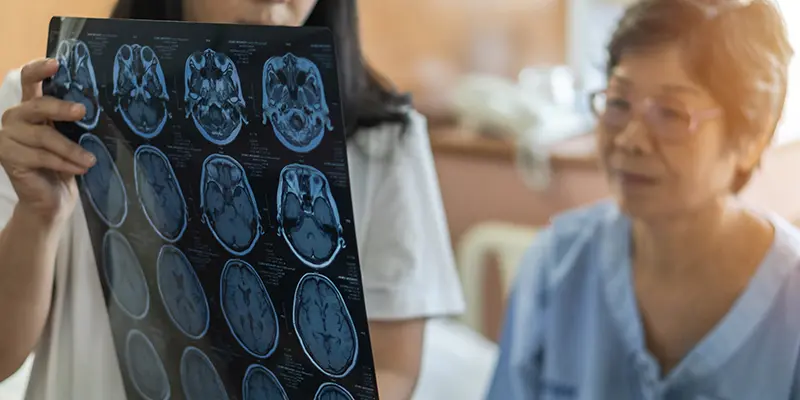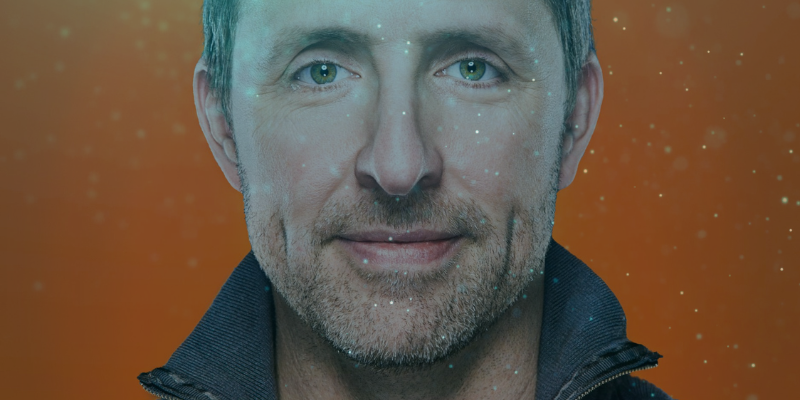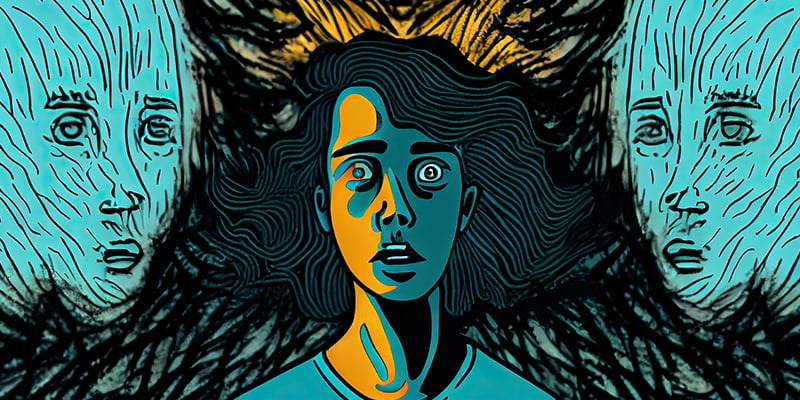
Content updated from previous publish date.
In Part 1 of this 2-part blog, you learned how the quality of your decisions plays a major role in your health, wellness, and longevity. And more importantly, you saw how the health of your brain is the key that is either helping you make good decisions or driving you to remain stuck in bad habits that don’t serve you. To help you improve your decision-making ability, follow these 6 additional brain-based tips. Your body will thank you for it.
Brain health is the key that is either helping you make good decisions or driving you to remain stuck in bad habits that don’t serve you. Click To Tweet
6 BRAIN-BASED TIPS TO MAKE BETTER DECISIONS
1. Start brain health early.
If we want our children to make better decisions during their lifetime, we need to do a much better job of taking care of their brains from an early age. The brain is not fully developed until we are about 25 years old (about 28 years old in males), and a child’s daily habits and home environment play a major role in the health of the developing brain. To avoid disrupting early brain development, which can have a negative effect on the ability to make good decisions, teach young people to eat a nutritious diet, cope with stress, get adequate sleep, protect their brain from head trauma, and avoid smoking and substance use.
2. Don’t wait to treat ADD/ADHD.
When left untreated, ADD/ADHD lowers the ability to control impulses, setting people up for significant physical health problems, poor decisions, and in some cases, early death. Research shows that kids with the condition are at increased risk for obesity, diabetes, hypertension, and more. Natural ways to help ADD/ADHD include intense aerobic exercise, a healthy diet that includes protein (especially for breakfast), and nutritional supplements (such as a multiple vitamin, fish oil, green tea, rhodiola, and l-tyrosine). Some people may benefit from medication to enhance prefrontal cortex (PFC) function.
3. Maintain a healthy weight.
Being overweight or obese is damaging to your PFC and can have a negative impact on the decision-making parts of the brain. In fact, an analysis of the brain SPECT scans from 20,000 patients at Amen Clinics found that as your weight goes up, the size and function of your brain go down. Learning to love foods that love you back—rather than loving foods that harm your brain and body—can help you get your weight under control and will boost your physical and mental health. When your brain and body function better, it will enhance your decision-making for better health and longevity.
4. Practice self-control.
Training your willpower is a good exercise to strengthen your PFC. The more you use it the stronger it gets. To develop better self-control, practice saying no to the things that are not good for you. Over time you will find it easier to do.
5. Optimize your levels of omega-3 fatty acids.
Low levels of omega-3s have been associated with ADD/ADHD, depression, Alzheimer’s disease, inflammation, and obesity—all brain issues that contribute to poor decision-making. Research shows that omega-3 fatty acids can improve blood flow, brain function, memory, and mood, as well as reduce brain shrinkage from aging, and inflammation. There are two active compounds in omega-3s: EPA (eicosapentaenoic acid) and DHA (docosahexaenoic acid). You need both. Boost your omega-3 levels by eating more fatty fish, such as salmon or mackerel, and/or taking a supplement.
6. Know your goals.
On one piece of paper write down the specific goals you have for all the main areas of your life. Then look at your goals every day and ask yourself, “Is my behavior getting me what I want?” This simple but profound activity can be of tremendous help in encouraging better daily choices that add up to a healthier life.
PUTTING BETTER DECISION-MAKING INTO ACTION
Now that you have seen all 14 of the tips from Part 1 and Part 2 of this blog, it’s time to start putting them into action. If you think it seems overwhelming, think again. You don’t have to do all of them all at once.
Most people find it’s easiest to incorporate one or two new habits at a time. Choose the tips that you think will make the biggest impact on your life and start with them. Once you start feeling comfortable with those new routines, choose one or more of the other strategies to add to your daily life.
The more of these brain-based habits you weave into your everyday routines, the easier it will be to consistently make better decisions. And better decisions mean better health, a better body, and a better life.
ADD/ADHD, depression, and other mental health issues can’t wait. At Amen Clinics, we’re here for you. We offer in-clinic brain scanning and appointments, as well as mental telehealth, clinical evaluations, and therapy for adults, teens, children, and couples. Find out more by speaking to a specialist today at 888-288-9834 or visit our contact page here.





Need help with memory loss. My memory seems to be getting worse. Need to do as much aci can to stop this degeneration. I’m taking supplements and watching what I eat.
Comment by How do I order the brain fit games? — January 31, 2018 @ 6:05 AM
We love the following supplements: green tea, rhodiola, tyrosine and S-Ame ! Thus, wondering what does that convey about brain type?
Comment by Carol — February 5, 2018 @ 6:25 AM
I was in a drowning incident when I was nine in a river in Hobart Tasmania..I am now 59..I was not examined at the time, as I regained consciousness naturally in the rescue process , vomited and didn’t seem affected. There was a foamy light pink froth in the vomit..
That year I had bad dreams, and was bullied at school, so much from staff and in the playground that I developed tonsilitis and was sick so much throughout the year, that I was forced to stay back and repeat the third year..with the bullying teacher.
From that year, I seemed unable to concentrate, was more forgetful , couldn’t comprehend what I read, and also could not understand mathematics..I shut down until grade six..where I was bought out of myself with a great teacher, a nun, who seemed to understand all the children better..
There was encouragement and challenges and responsibilities given to each of us, and mine was to be a leader and also to act in plays, I had a good voice and sang well from an early age in competitions as a solo singer at age 6 and with my young cousins in duos and trio harmony performance where we were awarded…I went on to become a successful singer in Australia,
I have always thought there was something wrong with me , and could not comprehend what I read until I was 27..
There is more to the story, so I put it down to the stress, trauma neglect and ignorance of my upbringing..I was also bullied at Kindergarten before the drowning,and my mother kept me at home..My mother was 38 when she became pregnant with me, she was a heavy smoker, and didnt know she was pregnant, for a while she was also depressed as was her mother,. I told her I had not many memorys of her as a child, and she said, She wanted me to die and when something happened to me , like the drowning etc she would feel shocking guilt..
I was alone a lot as a child, and played alone, ran away twice as a very young child , my siblings were much older, my brother 12 years older and my eldest sister 20 years older..
A saving grace was a grandmother. my sister and her friends and when they were home the games with my brothers..
My mother wasn’t violent, but neglectful and resentful as was her mother..Her mother also became paranoid and sicker after each child, she had eight children, no help etc
I had an abortion at 16, once again I was alone, it was illegal in Tasmania, and I had to fly to Melbourne with my young boyfriend to have an abortion, our choice..
My mother would have destroyed our lives even more, by making leave school and marry..
As a singer I always had to have the lyrics on stage in case of a black out from anxiousness..this rarely happened on stage..
Singing was also a saving grace..I have much to be grateful for. but would like more answers..My family wont talk about anything ..Should I have a brain scan here in Australia ? The other little boy in the incident who was only three, did suffer brain damage, and the family moved out of the neighbourhood and I never heard from them again..Very sad..
Am I just suffering from anxiety due to upbringing or was this hereditary ? My father was also a chain smoker, but I think this was because of Mums constant verbal abuse and scapegoating..Mum was definitely depressed and my siblings have had issues with alcohol., gambling, workaholics, perfectionism, asthma, excema, and nervous breakdowns..My fathers side of the family had no mental illness, that we are aware of..Recently I was hospitalized after fainting and heavy heart papitations with a suspected heart attack and it was only too much coffee and anxiety from this..I am also intolerance to Salicylate, which at the time I was abusing a lot..Salicylate is in many healthy foods, so blueberries etc., so my diet though restricted to bland colours give me the nutrients I need….
Comment by Christine Sullivan — February 6, 2018 @ 3:14 PM
Pre covid a 13 year old experienced something on line( threat, scam , I don’t know). But he was petrified, pounding heart, couldn’t sleep, eat. Stopped playing the game ( could have been fortnite) for months. We reassured him there was no hack. We never did anything more than reassure him. 3years later he got worse. Doesn’t want to go to restaurants orhave me post pictures on social media. He closes the curtains in the house. He doesn’t want me to be seen by his friends. When I am out it seems to worry him and wants me back home quickly. Doesn’t socialize much except playing on line with friends. He is in summer school and is finding it difficult to concentrate and retain information ( he does have learning challenges ) . Unfortunately the neuropsychologist that has evaluated him is concerned because his cognition as a child was at 95 , pre covid at 50 and now 8!!! Could it be the trauma he experienced on line be the cause? He senses his brain can’t retain information or learn things. Last night he asked me why he isn’t good in school and really wants to pass. We haven’t told him anything because she has not given me the written report back , yet.
What’s your take on this?
Comment by Anna — July 14, 2023 @ 3:29 AM